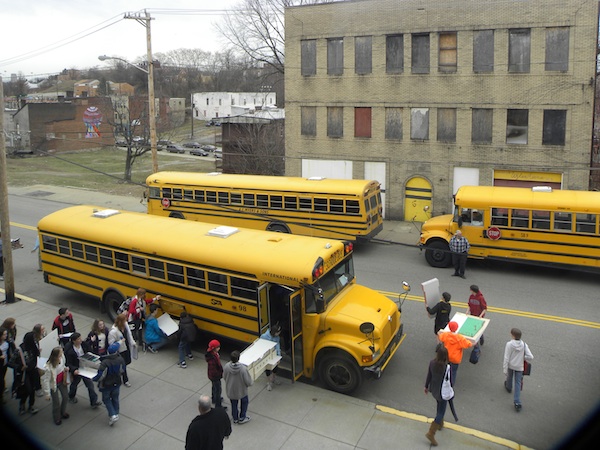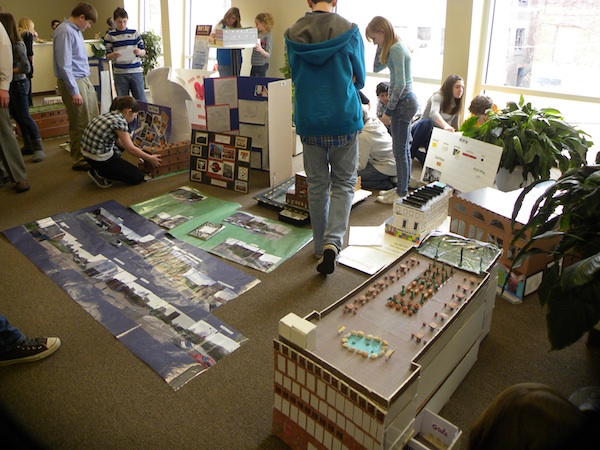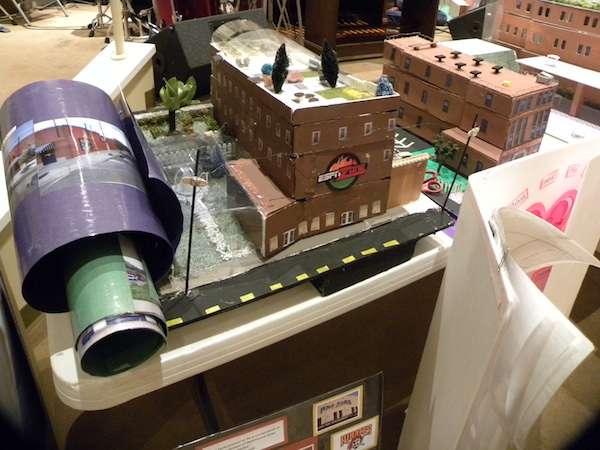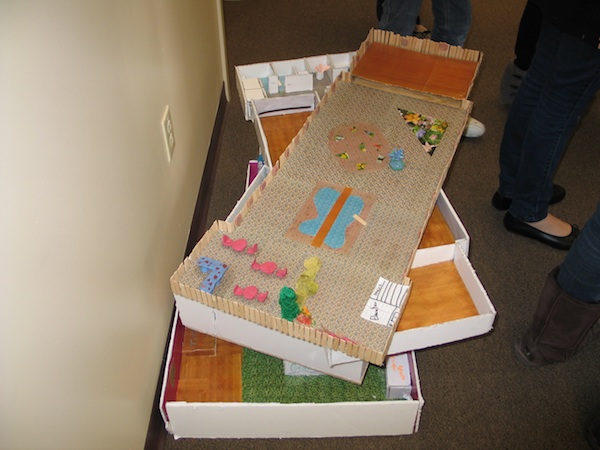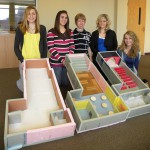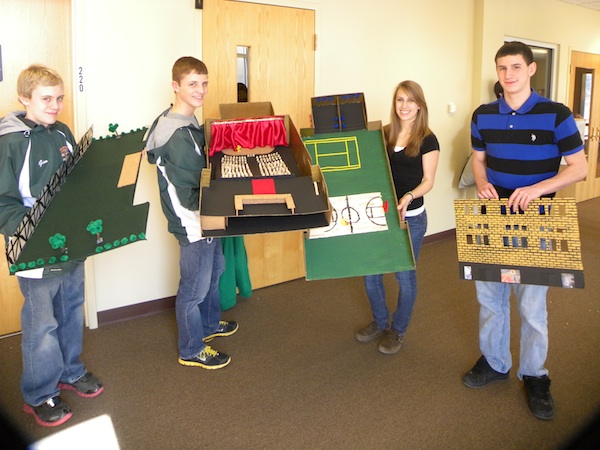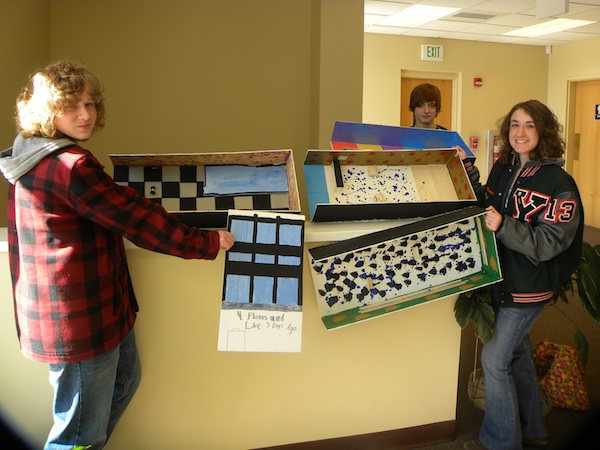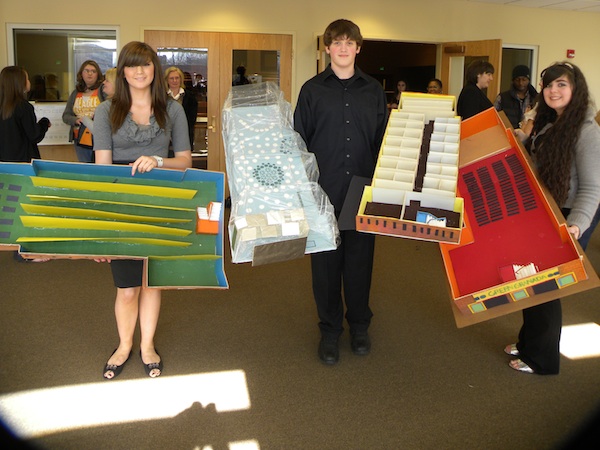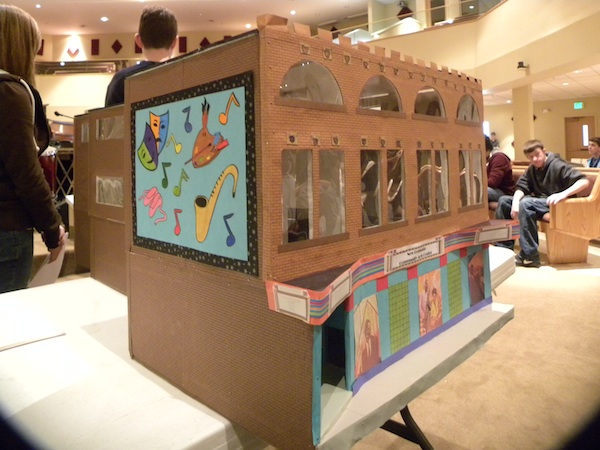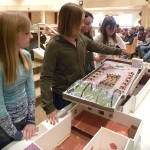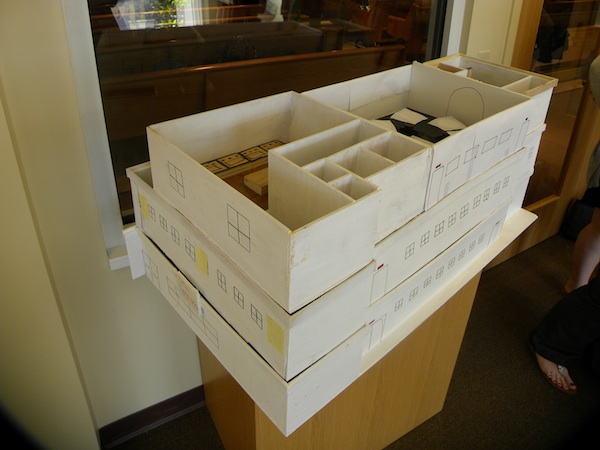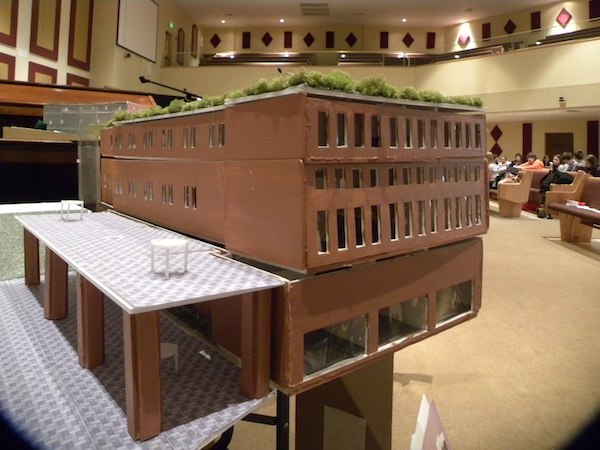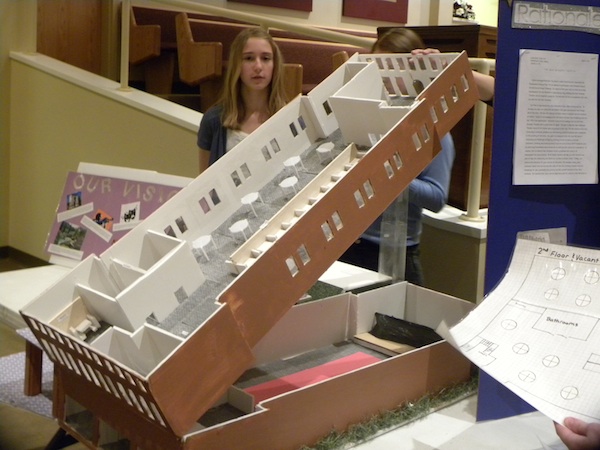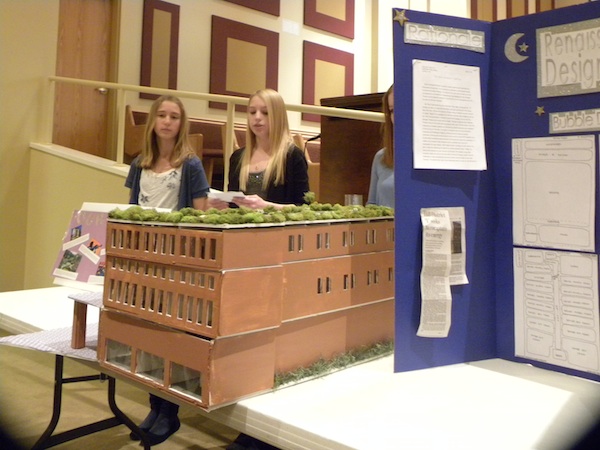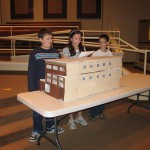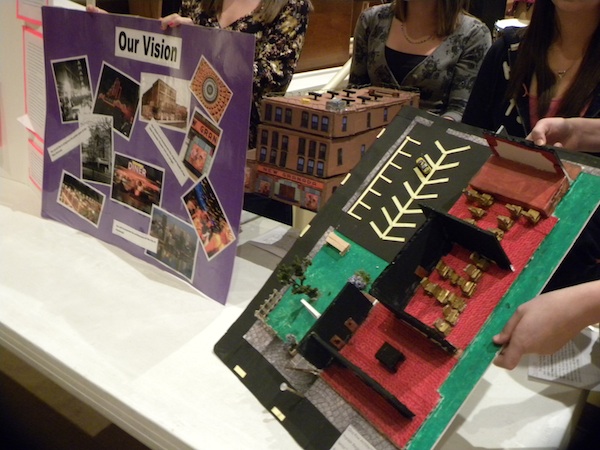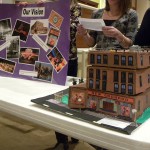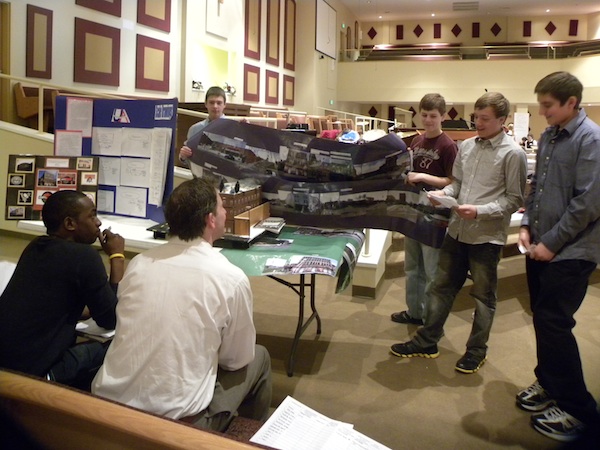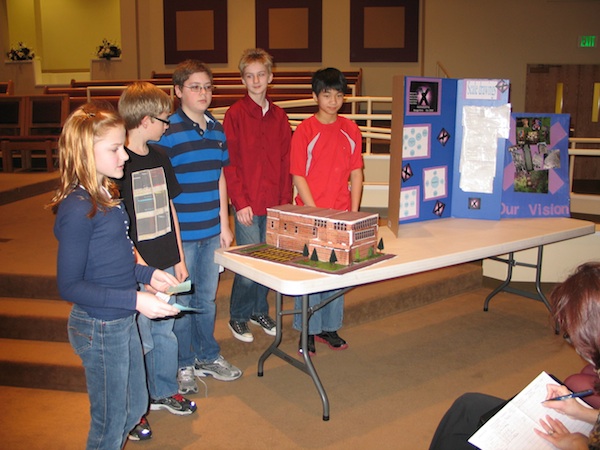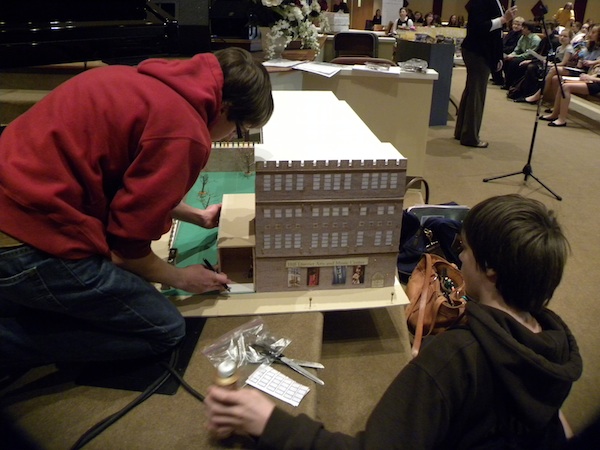
150 Students Envision New Uses for the New Granada Theater
More than 150 middle and high school students from Westmoreland County Schools participated in the 15th Annual Architectural Design Challenge sponsored by the Pittsburgh History & Landmarks Foundation in cooperation with the Hill Community Development Corporation and Hill House Association. After visiting the Hill District and touring the New Granada Theater on October 26, 2010, the middle and high school students worked in teams for five months to construct 3-D models showing their visions for the New Granada Theater. On March 3 and 4, 2011, thirty-two teams of students presented their models in front of a jury of architects at Ebenezer Baptist Church.
The students had exceptionally creative ideas and their models were beautifully detailed. They spoke with conviction about their ideas and described how their plans celebrated the history of the building and yet brought new energy and life to the vacant structure. After participating as one of the judges in the competition, Caitlin O’Hara from Urban Design Associates said: “Thank you for inviting me to be a part of such a wonderful experience today. Seeing the enthusiasm of the students and their attention to the specific details of the project was amazing! It was encouraging to see such a strong interest in the architecture profession and I couldn’t have been happier with all of the results that we saw.”
Architect Bob Baumbach added, “I thought the Architectural Design Challenge was a great success on many levels. The students were fully engaged in the project and they had an opportunity to get a better picture of the Hill District.”
Judges for the two-day event also included: Joanna Beres, Brian DiPietro, Julie Edwards, Sheri Kosh, Kelly Lyons, Canan Mutlu-Akin, Anne Riggs, Richard Schmitz, Leanne Stelluto, Marvin Walker, and Drew Weinheimer. We thank them for their time and thoughtful comments.
Marimba Milliones, executive director of the Hill Community Development Corporation, thanked the students for their hard work and interest in the New Granada. Terri Baltimore, program director from Hill House Association, thanked the students for “loving the New Granada back to life.”
Student recommendations for the New Granada included the following:
First floor: Cafe with WiFi, stage, and open mic; bookstore (with a section for new and old jazz selections); sports bar; 500-seat theater with a restored stage; poetry readings, theater classes, local band concerts, open Karaoke nights on Saturdays; theater for movies, plays, or local presentations; small cafes and dining areas surrounding an exhibit featuring the history of the building; Child Care Center; a skate park; grocery store and pharmacy; and an ESPN Zone restaurant and entertainment facility (for the entire building).
Second floor: A ballroom for dances, formal receptions, graduation parties, and birthday parties; a dinner theater with jazz musicians performing; classrooms for painting, sculpture, music, drama, etc.; a jazz-themed food court; a gym with bleachers, locker room, concession stand; a cafe with a stage and “open mic nights”: Yoga and Zumba classes; paintball; an organic grocery store; the Hill Museum with historical photos and artifacts; a gym and yoga center.
Third floor: Rental office space; a mall with spaces for one large store and eight smaller stores; a children’s art museum with space for local artists to hold classes; ballet, music, and art studios; a jazz-themed restaurant; spa; a community arts museum; batting cages and a pitching practice facility; a community center with computers and internet connections, pool tables, and a TV area.
Roof: Solar panels; a landscaped outdoor lunch area; a rooftop restaurant featuring organic food; an outdoor hot tub and Jacuzzi.
Vacant Lot: A community garden in the vacant lot; a parklet for children; an outdoor barbecue area.
Prizes were awarded and important lessons were learned. Student comments included the following:
“At first I thought old buildings were a waste of time. Now I see there are a lot of cool things in them.”
“It showed us that while you can keep the historical value of a building, you can also throw a new twist into it.”
“This is the most ambitious project that we do all year, and without it, our gifted program wouldn’t be as exciting.”
“I learned to see the greatness in old cities.”
“Fun! Fun! Fun! Do this next year.”
Funding support from the Alfred M. Oppenheimer Memorial Fund of The Pittsburgh Foundation, The Fine Foundation, and McSwigan Family Foundation make it possible for PHLF to offer educational programs such as these to more than 5,000 students in the Pittsburgh region.

